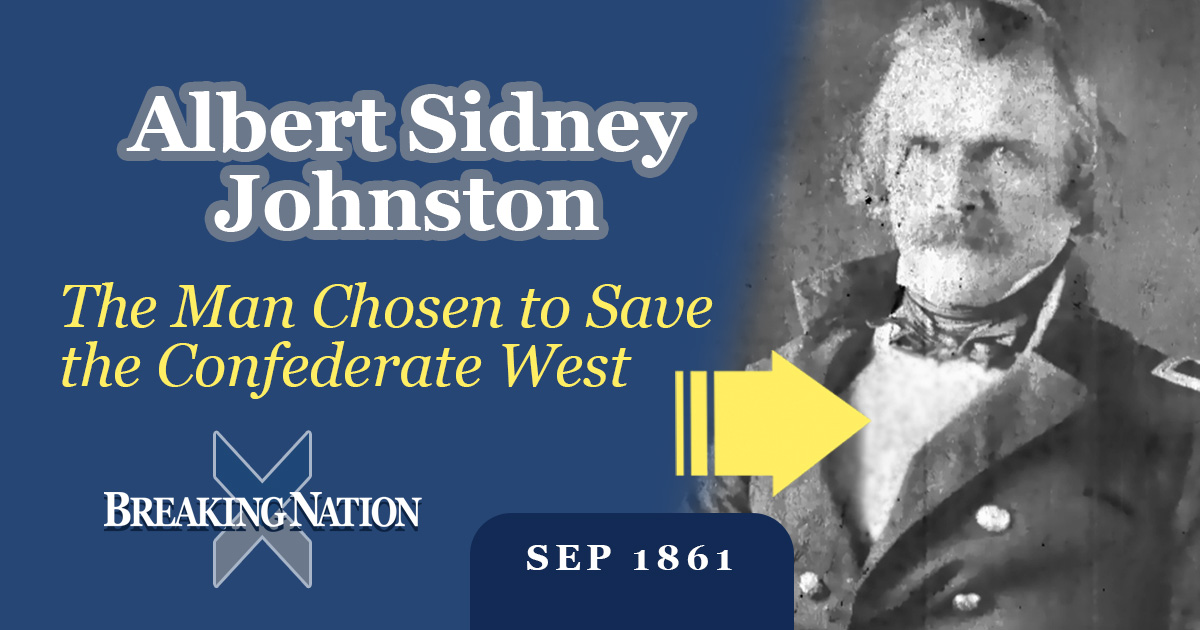Johnston Takes Command: Can One Man Defend Half a Continent?

On September 10, 1861, Confederate president Jefferson Davis appointed General Albert Sidney Johnston to command the sprawling Western Department, a vast military theater that stretched from the Appalachians to the Mississippi River. The decision carried immense weight for the Confederacy, both strategically and symbolically. At a moment when the Union seemed to be advancing on multiple fronts, Johnston’s appointment was intended to provide cohesion, direction, and prestige to Confederate efforts in the West.
Johnston was not an obscure choice. He was a seasoned officer with service in the U.S. Army, the Texas Revolution, and the Mexican-American War, and his reputation was second only to Robert E. Lee’s among Confederate generals at the start of the war. Davis, who had served with Johnston in the old army, regarded him as one of the South’s most capable leaders. His arrival in the West thus reassured Southern civilians and soldiers alike that the region would not be neglected in favor of Virginia, where most of the early fighting had taken place.
The significance of Johnston’s appointment also lay in the daunting challenges he inherited. Unlike Virginia, where Confederate forces could concentrate in a relatively compact area, the Western theater demanded the defense of an enormous frontier with limited manpower and resources. Union armies were already pressing into Kentucky and Missouri, and control of the Mississippi River—vital for transportation, trade, and communication—was clearly at stake. Johnston had to knit together scattered Confederate forces, deal with divided loyalties in border states, and build an army out of green recruits. His command was, in short, both critical and nearly impossible.
Symbolically, Johnston’s appointment also reflected the Confederacy’s recognition that the war would be fought on more than just Virginia’s soil. By investing its most prestigious general in the Western theater, Richmond signaled to the public that the defense of Kentucky, Tennessee, and the Mississippi Valley was central to the Southern cause. Johnston became, in the minds of many Southerners, the embodiment of Confederate hopes west of the Appalachians.
Although his tenure would prove short—he was killed at Shiloh in April 1862—Johnston’s appointment on September 10, 1861, marked a turning point in Confederate military organization. It demonstrated both the vastness of the struggle and the Confederacy’s attempt to meet it with leaders of national stature. His presence in the West lent the Confederate war effort a seriousness and legitimacy that went beyond mere logistics, shaping morale and strategy in a theater that would ultimately prove decisive.
Breaking Nation: A Civil War Podcast explores the American Civil War, its turning points, and our national memory. Discover full episodes, transcripts, and resources at www.breakingnation.com — your destination for in-depth Civil War podcast content and fresh perspectives on America’s past. Listen on Apple Podcasts, Spotify and Amazon Music.




